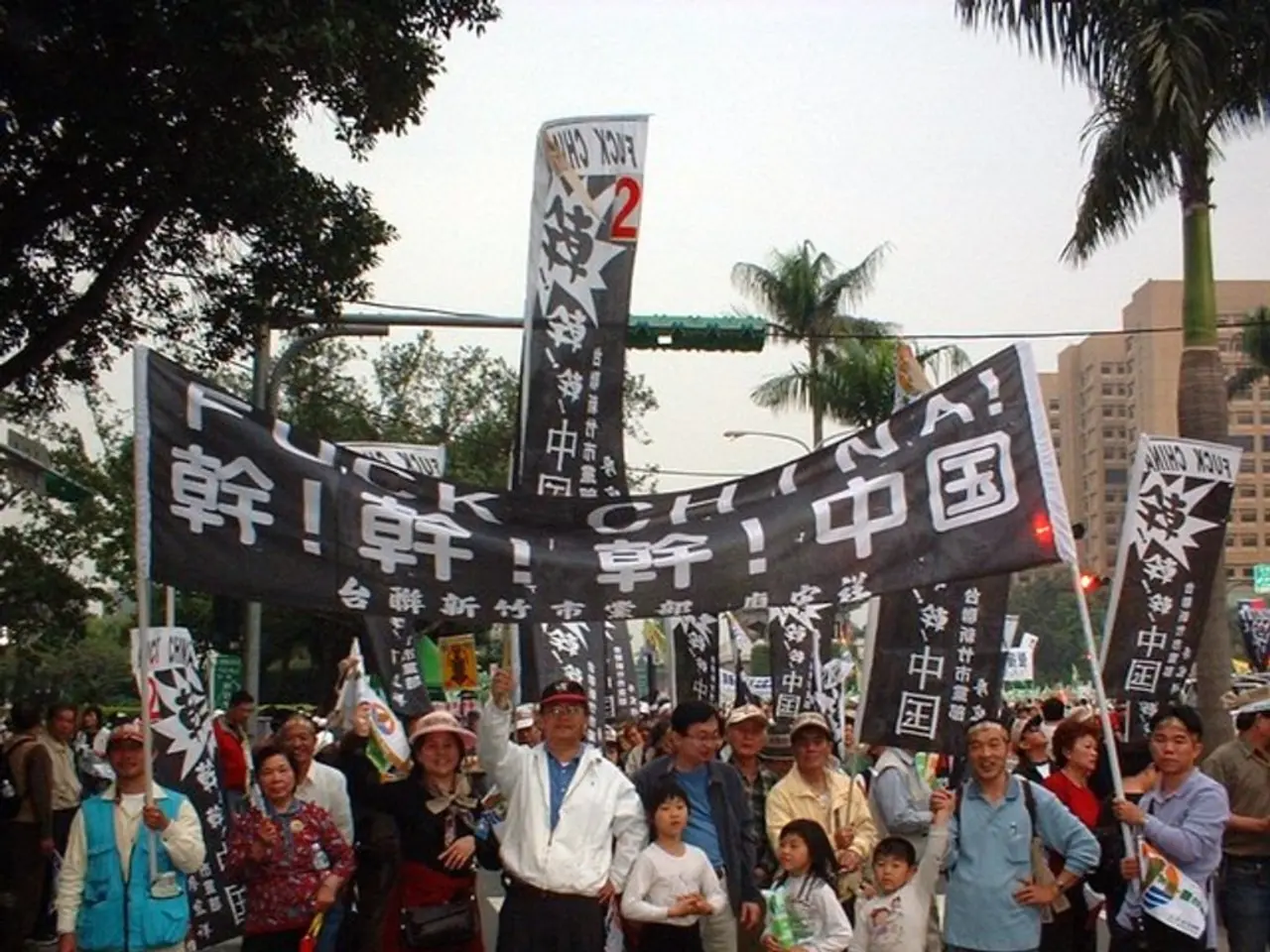Journey Through Iran: Film Director Ali Samadi Ahadi Explores the Challenges of Activists in the Clutch of the Mullahs' Regime (Duration: 7 Days)
In August 2025, the German-produced film "The Sheet" is set to be released, shedding light on the life of Narges Mohammadi, the 2023 Nobel Peace Prize laureate[1][2]. Directed by Ali Samadi Ahadi and written by Mohammad Rasoulof, the movie tells the story of Myriam, a human rights activist imprisoned in Iran who, after years behind bars, is granted a 7-day medical leave and faces a critical decision: to escape the country and reunite with her family or stay to continue her fight for justice[1].
Ali Samadi Ahadi, born in Iran and now living in Germany, has a background shaped by his own escape from conflict during the Iran-Iraq war. His filmmaking focuses on socially relevant themes, and in "The Sheet," he underscores that women have always been the driving force behind the revolution in Iran[1]. The screenplay by Mohammad Rasoulof, another acclaimed Iranian filmmaker, supports the film’s authentic connection to Iranian sociopolitical realities.
Myriam, played by Vishka Asayesh, discovers her family has organized her escape to Germany. She embarks on an exile journey with the help of friends and strangers, experiencing fear, diverse means of transportation, treacherous terrain, and the joy of reuniting with her family. The film explores the double punishment faced by Iranian activists, particularly women, who are crushed by the regime and pressured to abandon their convictions.
The story mirrors Narges Mohammad's real-life struggle as a prominent Iranian activist. She has spent over ten years in Iranian prisons and continues to resist the regime despite health issues and family life impacts[3]. In December 2024, she was able to leave prison for medical reasons and has since refused to return, seeking treatment[4].
The film is inspired by events that occurred before the Iranian women's resistance movement, "Woman, Life, Freedom," gained momentum[5]. This movement started after the death of Mahsa Amini on September 16, 2022, due to her arrest by the morality police for improperly wearing her veil[6]. The movement is currently challenging the power of the Revolutionary Guards in Iran.
The United Nations has condemned the recent increase in summary executions in Iran, with at least 719 people executed in the country this year, including 18 women[7]. Iranian authorities continue to pressure Narges Mohammadi to return to detention, according to Human Rights Watch[8]. However, Narges Mohammadi declared that the Nobel Peace Prize will make her more resilient, determined, optimistic, and enthusiastic in her fight for democracy, freedom, and equality[9].
"The Sheet" is a drama that also serves as a cinematic homage to Narges Mohammadi’s courage and sacrifice in the cause of human rights in Iran, making the film not only a drama but also a human rights statement reflecting her ongoing legacy[1][2]. The film stars Vishka Asayesh, Majid Bakhtiari, and Tanaz Molaei, and is distributed by L'Atelier Distribution.
References: 1. The Sheet 2. Narges Mohammadi 3. Narges Mohammadi's struggle continues despite health issues and family life impacts 4. Narges Mohammadi leaves prison for medical reasons and refuses to return 5. The film Seven Days is inspired by the life of Narges Mohammadi 6. Woman, Life, Freedom: the historic groundswell movement in Iran 7. UN condemns Iran's increase in summary executions 8. Iranian authorities pressure Narges Mohammadi to return to detention 9. Narges Mohammadi: Nobel Peace Prize will make me more resilient
- The political themes in "The Sheet" extend beyond its narrative, serving as a powerful statement on human rights and cultural travel.
- The lifestyle of Myriam, a character in the film, provides a stark contrast to the general news surrounding war-and-conflicts and crime-and-justice in the Iranian region.
- The migration of Myriam from Iran to Germany in the film parallels the real-world migration of director Ali Samadi Ahadi, offering an authentic depiction of such experiences.
- The socially relevant themes in "The Sheet," including women's rights and the struggle against injustice, echo the broader sociopolitical realities of Iran and highlight the ongoing importance of politics in shaping society.





